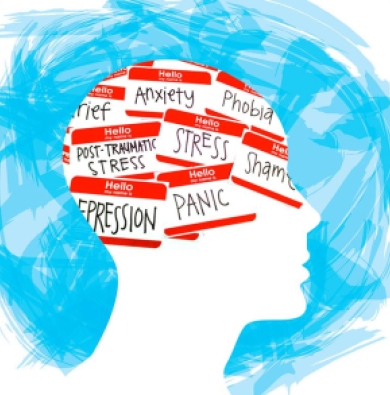A psychiatric disability is a diagnosed mental health condition that substantially limits one or more major life activities, such as learning, or performing essential job functions. Examples of psychiatric disabilities are depression, anxiety, schizophrenia, PTSD, and bipolar disorder (though there are many more!).
Available services are based on a psychiatric evaluation and written certification of eligibility for accommodations. Individuals will work closely with Access Specialists to develop academic, employment and personal success strategies.




Helpful Links
- Getting Started with RCPD: Registering with Accommodations
- Disability Documentation
- MSU Disability and Reasonable Accommodation Policy
- Housing and Campus Life Accommodations
- Confidentiality and Mandatory Reporting
- Implementing Accommodations: Student, Employee
- Service Animal Policy
- Assistance Animal Policy
- Dispute resolution: in the case you experience a disagreement regarding disability determination or appropriateness of accommodations, please review this page/process
Resources
Campus Mental Health Resources
MSU Counseling and Psychiatric Services (CAPS): CAPS, is the place on campus for students seeking help for a wide range of concerns, including depression, anxiety, stress management, homesickness, adjustment or acculturation, relationships, gender identity and sexual orientation (LBGTQ) concerns, substance abuse, trauma, eating or body image concerns, and other personal mental health concerns.
MSU Center for Survivors: Provides counseling, advocacy, and support groups to MSU students.
MSU Employee Assistance Program (EAP): EAP is a confidential counseling service provided at no cost to MSU faculty, staff, retirees, graduate student employees, and their families.
MSU Psychological Clinic: The MSU Psychological Clinic offers a wide range of therapy and assessment services.
MSU Psychiatry Clinic: The Department of Psychiatry is part of the MSU HealthTeam and provides comprehensive evaluation and treatment for adults, adolescents, children, college students, young adults, and the elderly with a wide variety of mental health disorders.
Psychology Today: Psychology Today is a valuable resource to find local mental health providers, therapists, psychiatrists, treatment centers, and support groups.
Other Resources
- Community Mental Health (Clinton, Eaton, Ingham)
- Sparrow Behavioral Health Services
- Mental Health America
- National Institute of Mental Health (NIMH)
- National Suicide Prevention Lifeline: 1-800-273-TALK (8255)
- Veterans Affairs Mental Health Services
- Assistive Technology
- Job Accessibility Network (JAN)
- Tower Guard
- MSU Neighborhood Student Success Collaborative (NSSC) Resources
- RCPD/MRS Careers Collaborative
- Accessible Textbooks/Media
- Student Resources



